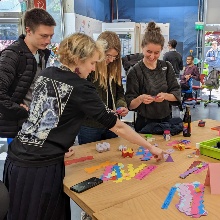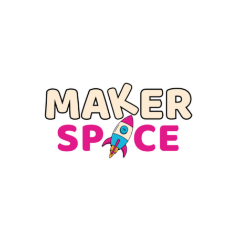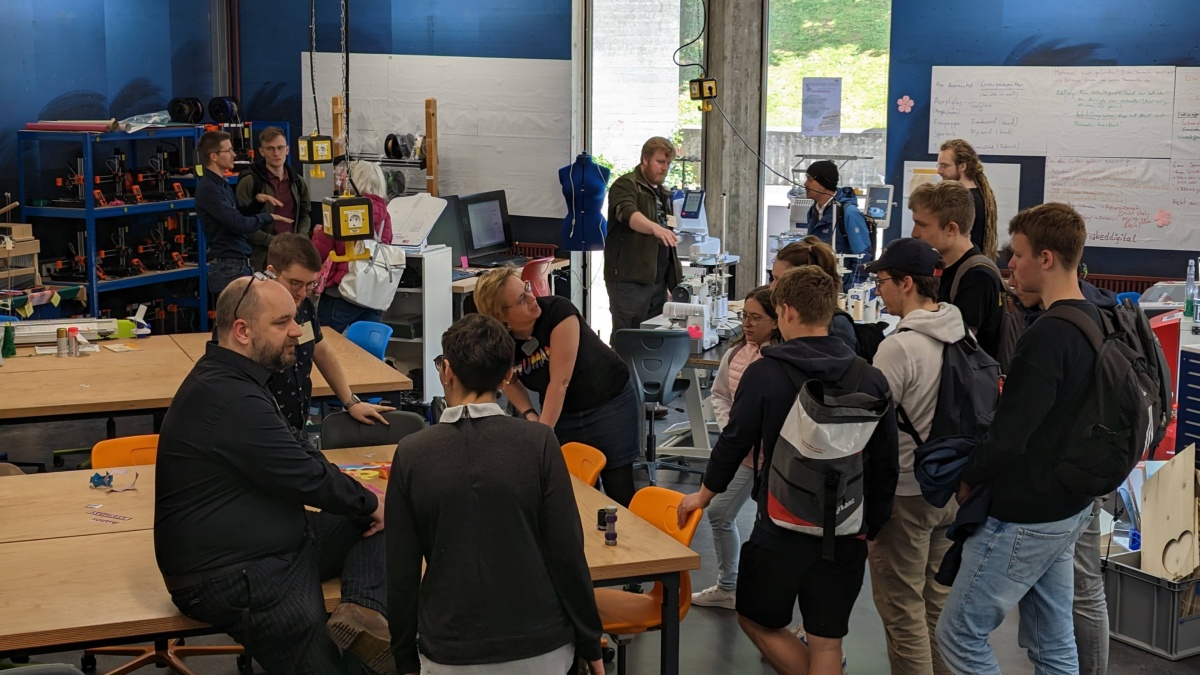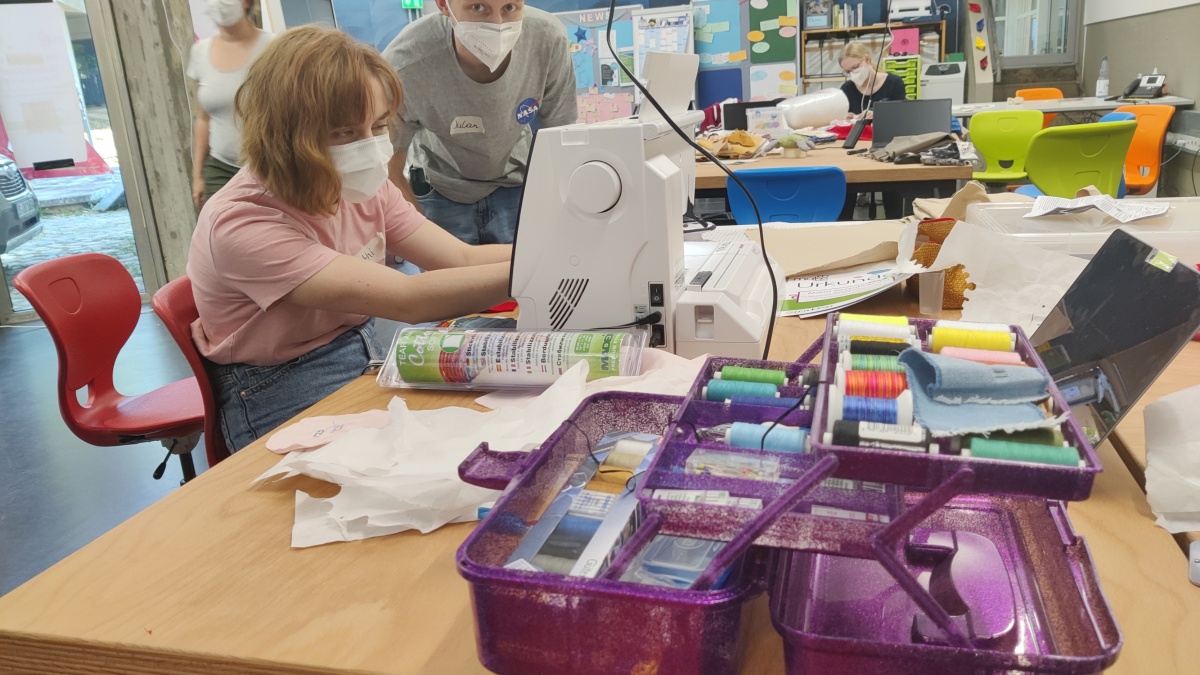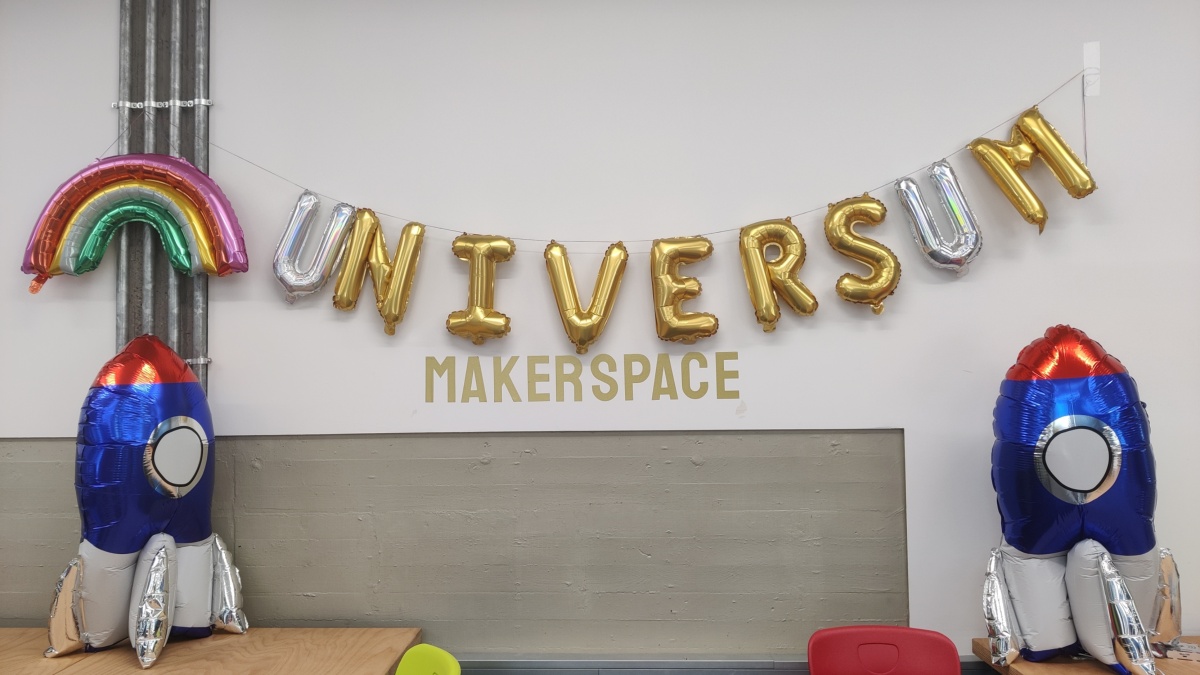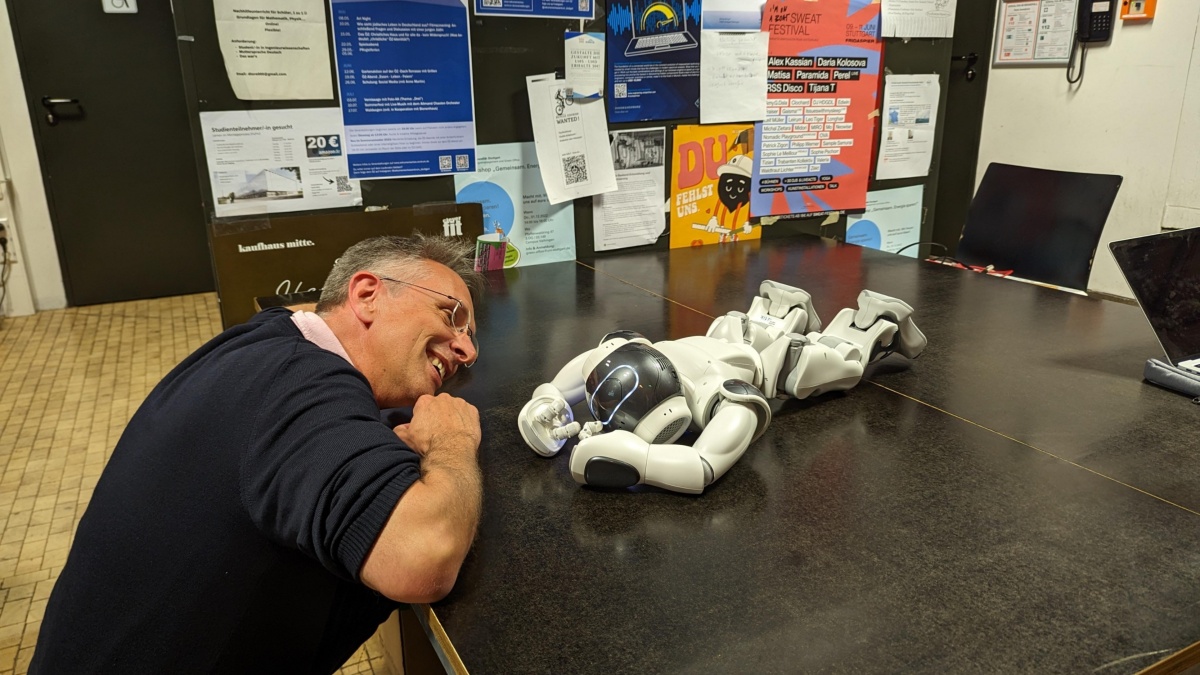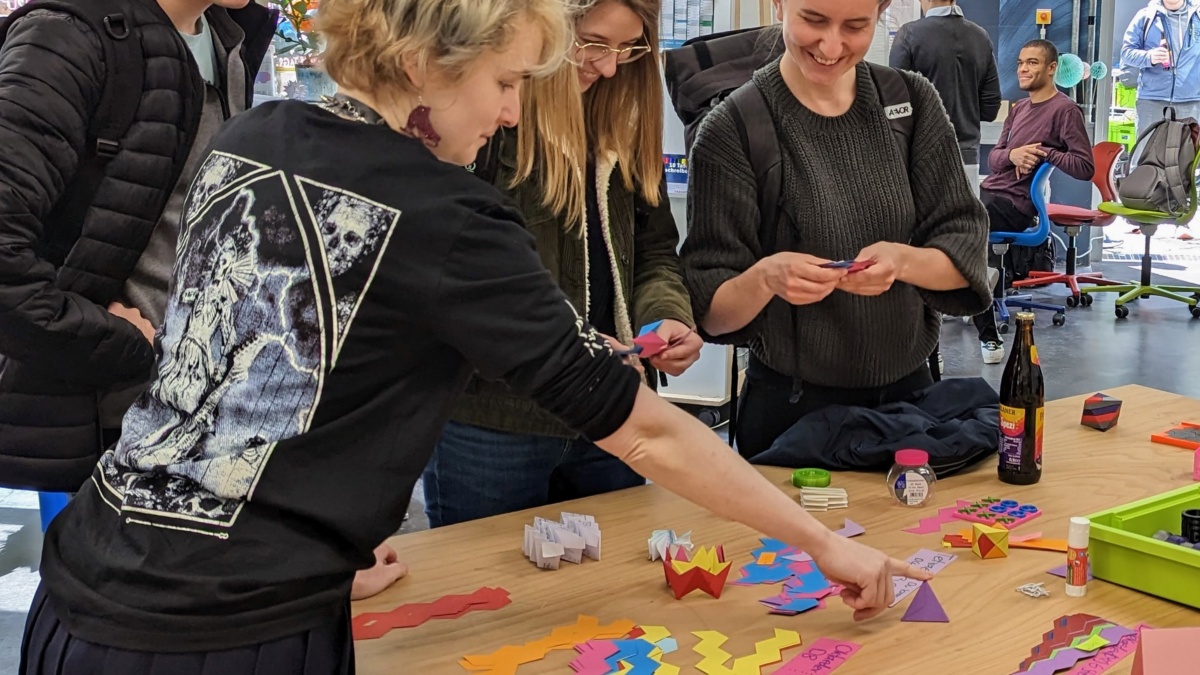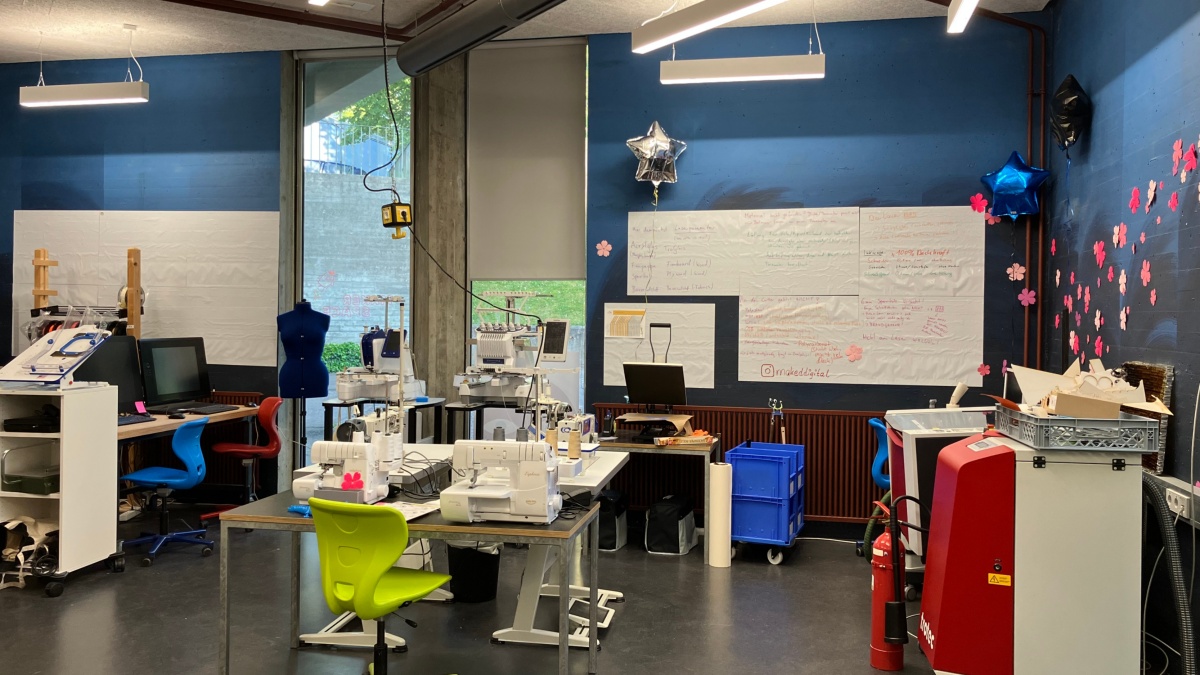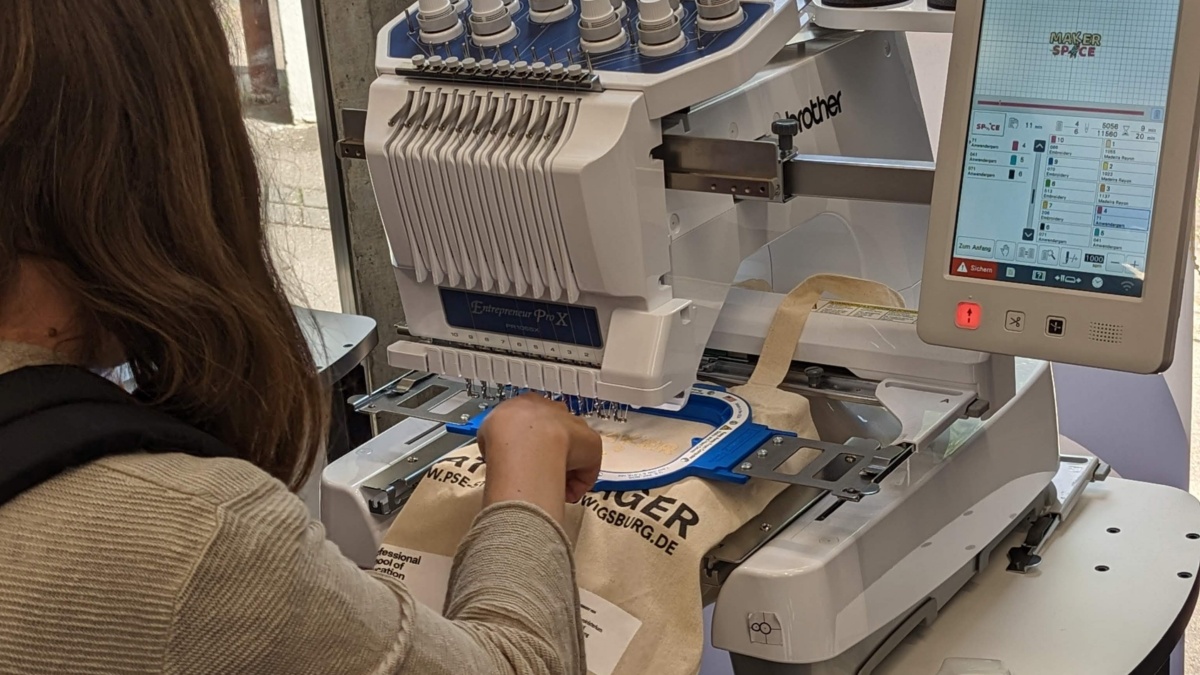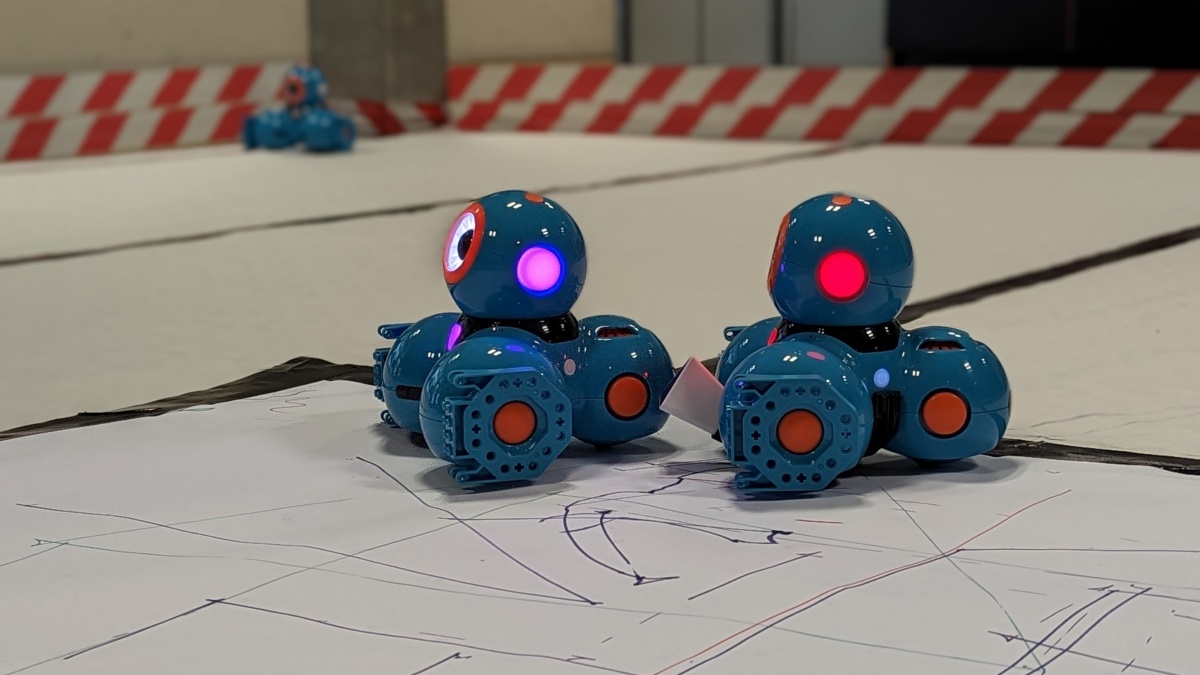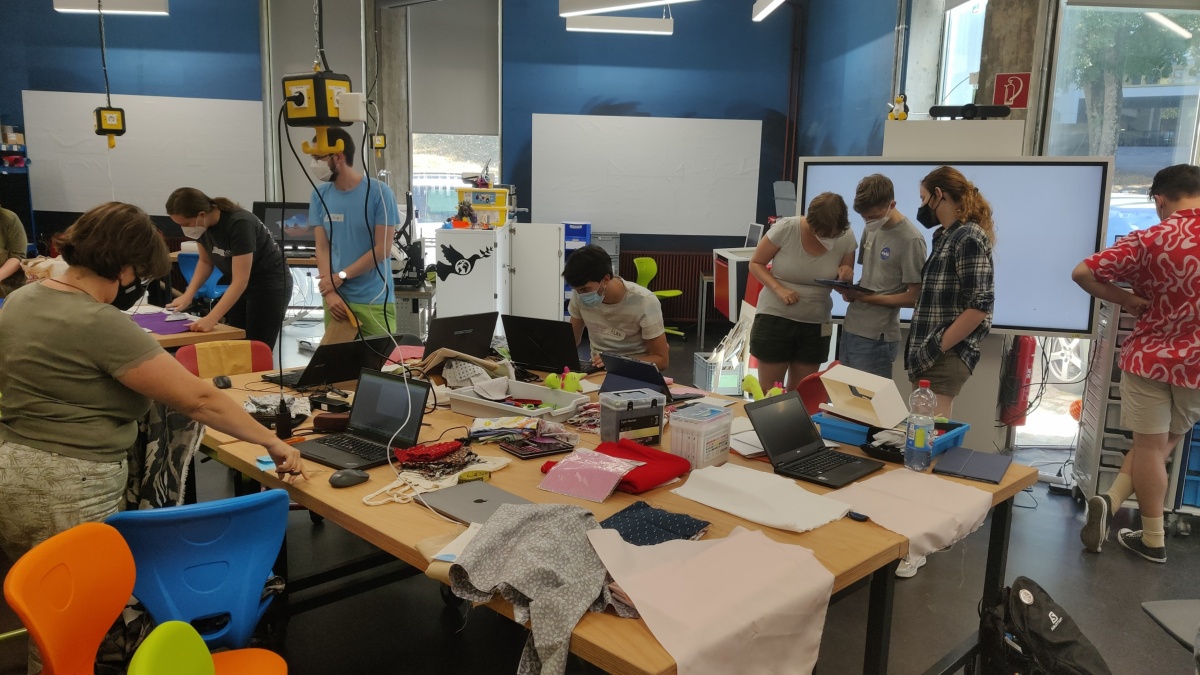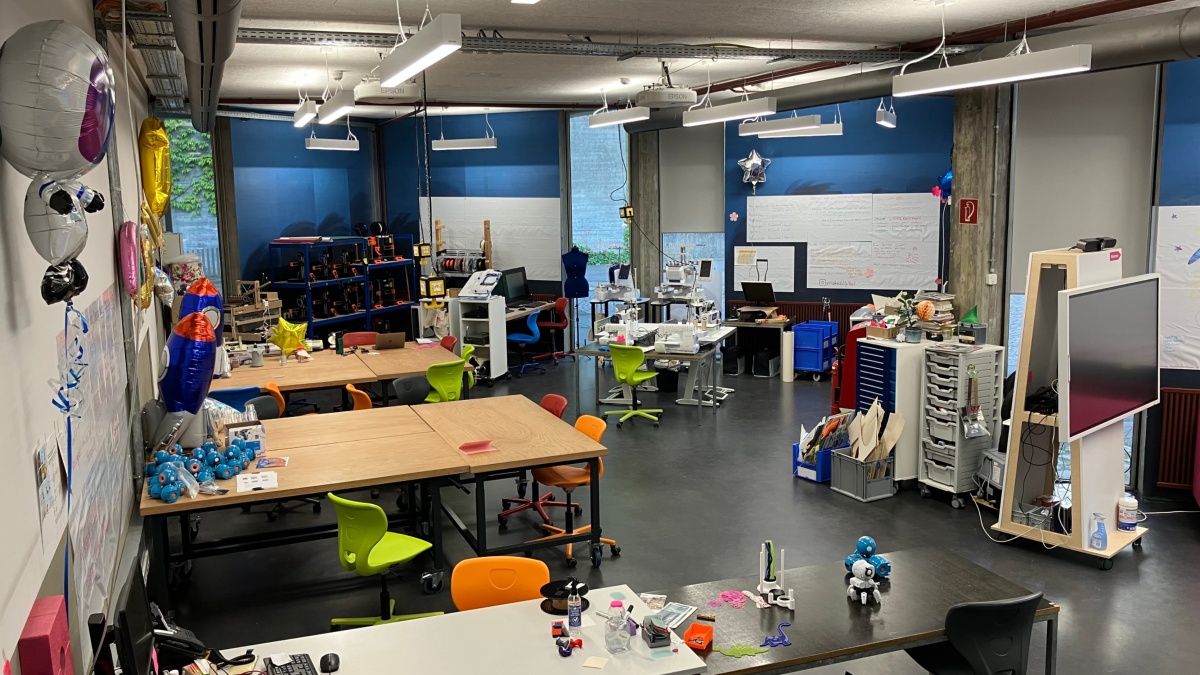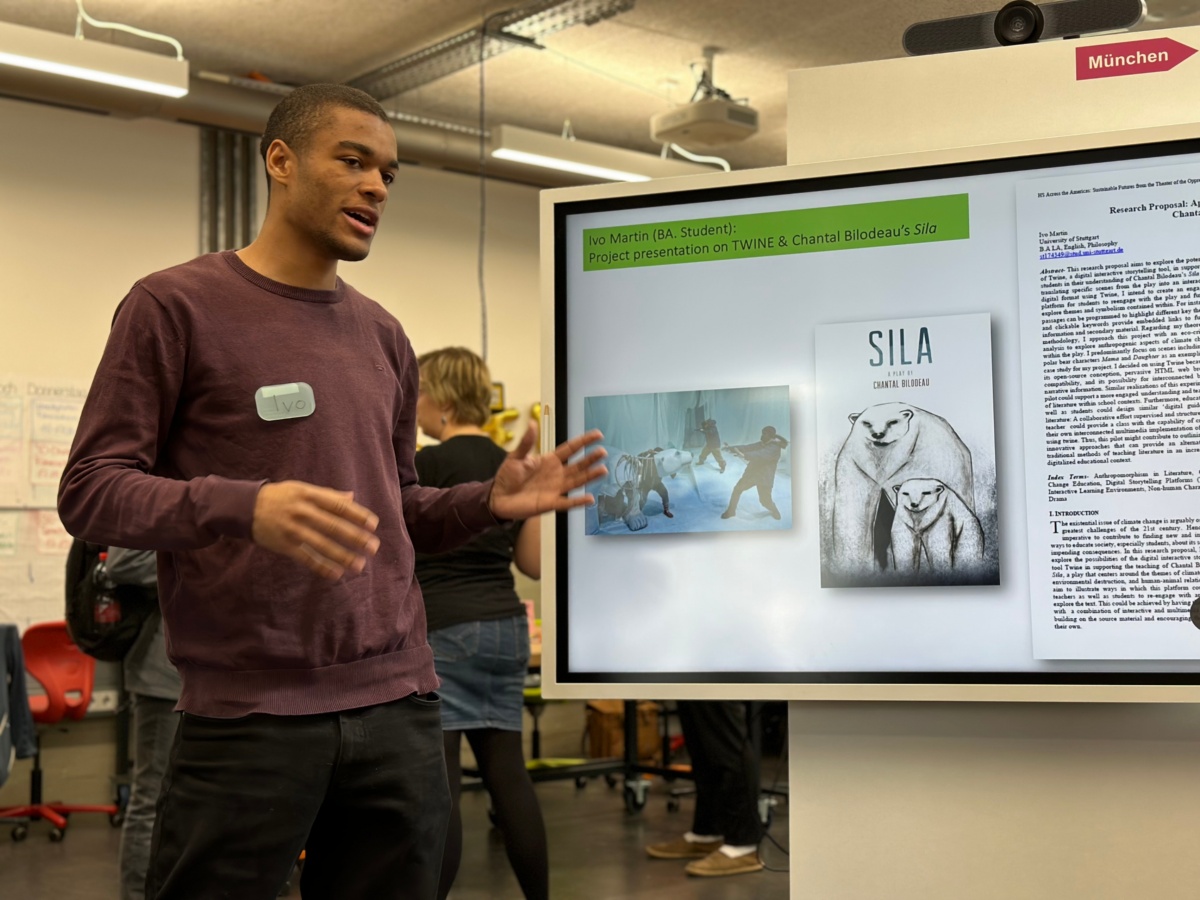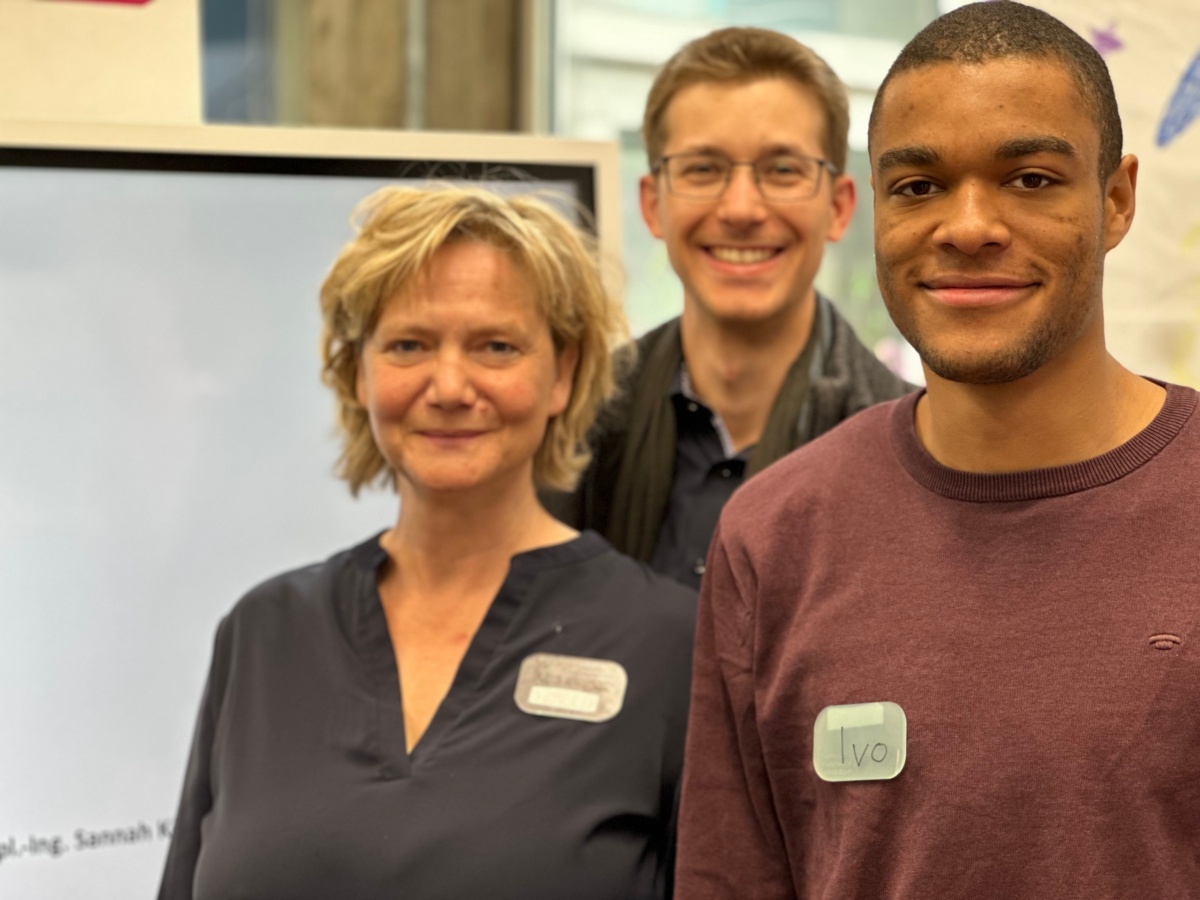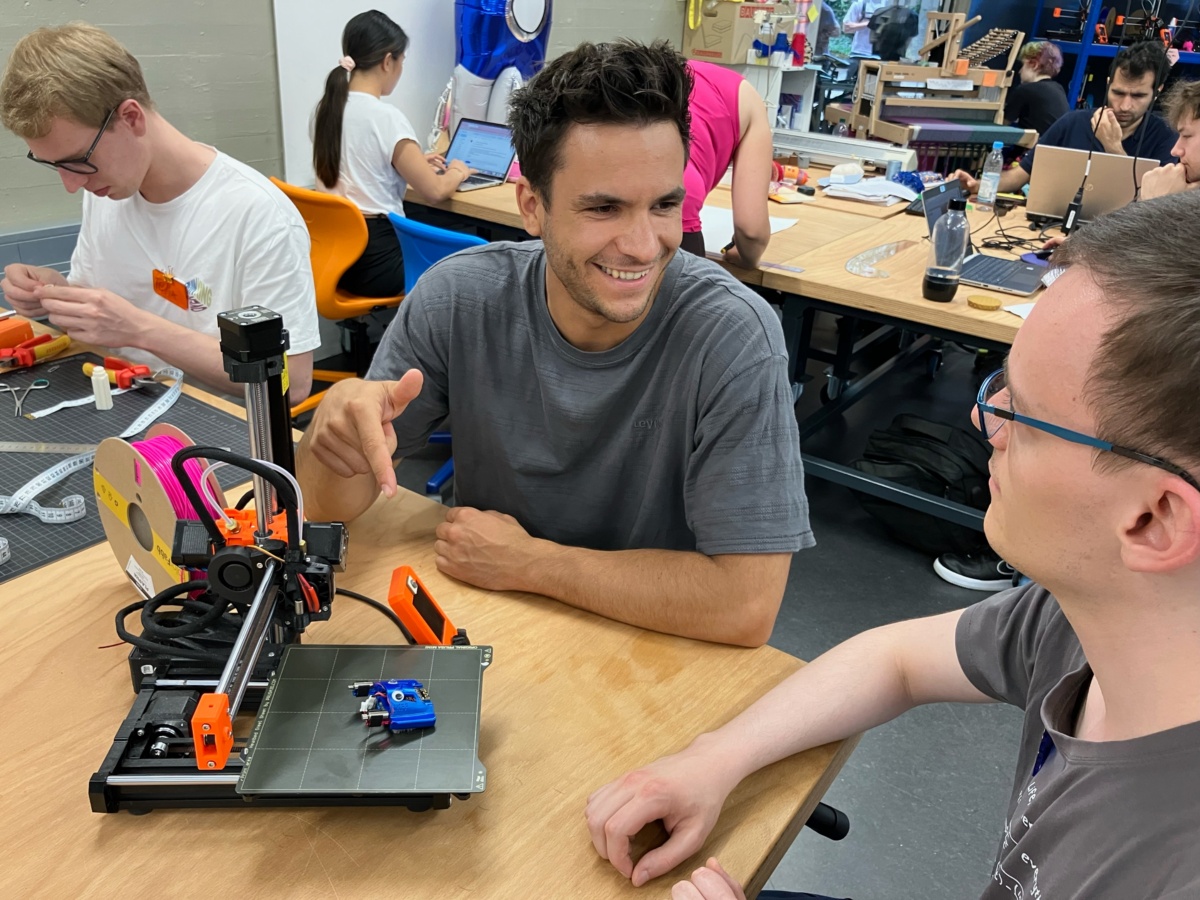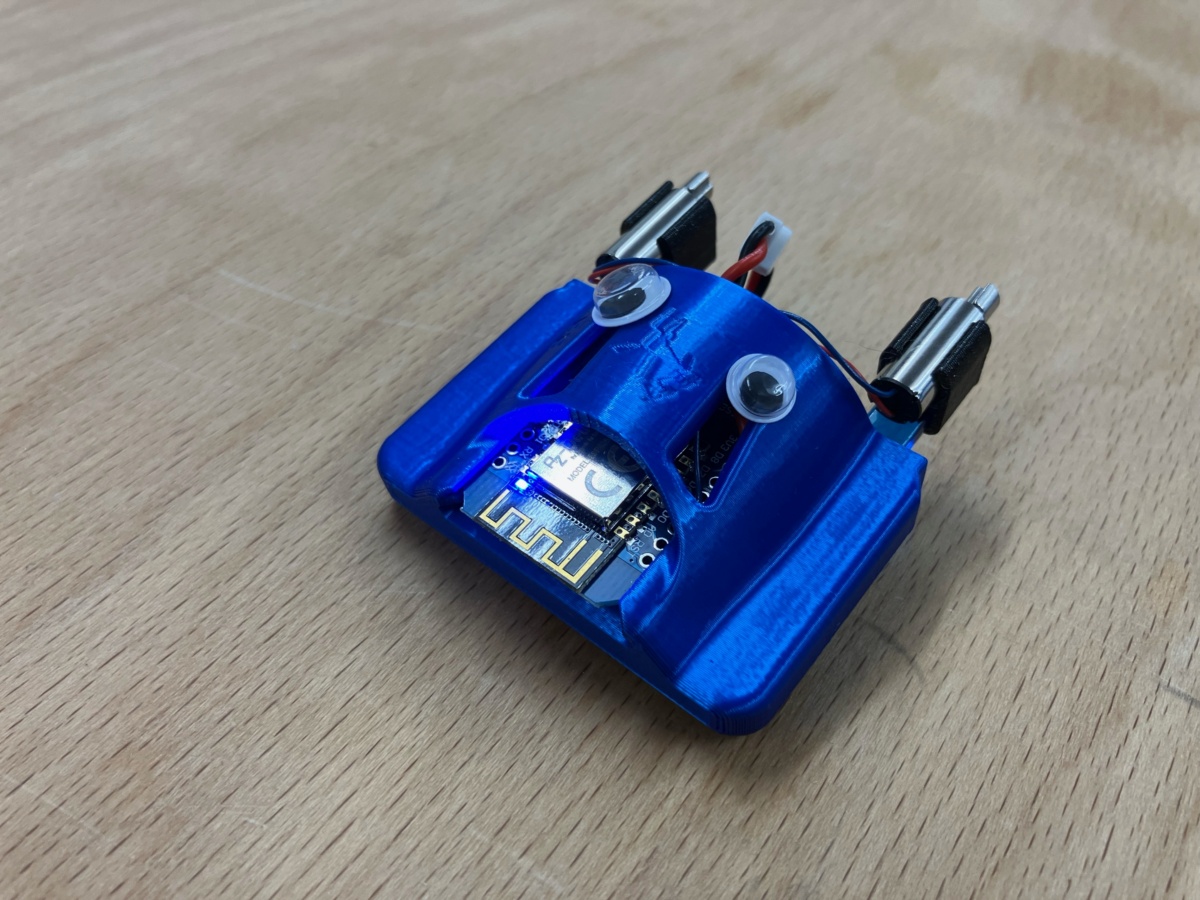What is a makerspace for?
Makerspaces are all about trying out new technology and new manufacturing processes and using them creatively. They are workshops in which a wide variety of equipment and machines are made available free of charge. The makerspace can be used by all members of the University of Stuttgart and the colleges of PSE Stuttgart-Ludwigsburg, both for their own projects and for integration into university teaching. The focus of the work is on digitization projects, but ultimately there are no limits to the imagination for making projects. The makerspace is supervised by trained staff who provide support with both technical questions and the implementation of the making project.
Which machines and devices can I find in the Makerspace?
The makerspace's equipment is constantly evolving, partly due to the needs of the users. The makerspace currently has a 3D printer, laser cutter, embroidery machine, knitting machine, cutting plotter and much more! Up-to-date information can always be found in the makerspace's ILIAS course.
Where can I find the Makerspace?
The Makerspace of the University of Stuttgart is centrally located on the Vaihingen campus, in the former Universum, Pfaffenwaldring 45, close to the S-Bahn, canteen and university library. The entrance is barrier-free.
How can I take part?
All members of the University of Stuttgart and the colleges of the PSE Stuttgart-Ludwigsburg can take part. However, a safety introduction is required, as well as a “driver's license” for some devices. Current dates for these introductions can be found in the ILIAS course of the Makerspace.
We offer a varied course program so that everyone can benefit from the Makerspace without any prior knowledge: Weekly introductions to all devices and, during the lecture period, weekly changing workshops on a wide variety of making topics.
Another pillar of our work is teaching cooperation with various facilities and institutes at our university.
Diversity, inclusivity and the greatest possible accessibility are very important to us. We strive for great openness and transparency here, for example through our Code of Conduct and specific information on the accessibility of individual devices on our wiki. Contact us if you have any questions!
1. We see diversity as an enrichment to our space. We welcome everyone no matter their origin, ethnicity, gender, sexuality, religion, disabilities and other forms of diversity. We don't tolerate intolerance.
2. We speak and act without prejudice and help other people recognize their prejudiced behavior.
3. We openly communicate with everyone in the maker-space, to further a successful making experience. For us this includes:
-
- We learn collectively and support each other, we share our experience and knowledge freely. We are all simultaneously students and teachers. Failure is an opportunity for improvement.
- We welcome people form all fields of study and with all levels of experience.
- We value open communication and treat each other as equals, this includes that feedback and advice can be exchanged without consideration of perceived hierarchies.
- We act as role-models
4.We respect the personal boundaries of others.
5.We refer to the maker-space staff in case of problems e.g. interpersonal conflicts, machine damage, material inquiries etc.
Courses in the Makerspace WiSe 23/24
Weekly workshop series on various hardware and software making topics.
Students take part in at least six workshops and present their own making project at the end of the semester.
Examples of workshops from recent years:
- Interactive storytelling with “twine”
- Stop-motion videos
- Programming an embroidery machine with “Turtlestitch”
- Technical origami
- Chips, makers and game tokens with the laser cutter and 3D printer
- Escape games with “Actionbound”
- Digital flipbook
- “Tonuino”: letting things speak
- Designing jewelry with a 3D printer and laser cutter
- Visualize mathematical structures with “crochet”
- Stickers made from your own handwriting with the cutting plotter
As part of the block courses, students gain insights into the basics of robotics and apply these to their own ideas in the form of a “silly robot”. They design and program their robot for any area of application and present it to their fellow students.
In block two, students learn the basics of various partially digital textile production processes on our programmable embroidery, knitting and weaving machines and create their own knitted or woven project.
Makerspace supervisors (Spacies) are student volunteers who are interested in making processes and enjoy guiding and accompanying others.
By working in the makerspace and completing corresponding exercises, participants not only learn how to operate the equipment and machines in the makerspace, but also how to guide others in using the equipment and how to prepare learning content in a didactically meaningful way.
Teaching cooperations of the last semesters
Are you fascinated by the makerspace and would like to use it in your event? Are you interested in making projects, but don't yet know how you can incorporate making into your teaching?
We would be happy to advise and support you, just get in touch!
In collaboration with Prof. Heymann, Institute of Biomaterials and Biomolecular Systems, Department of Intelligent Biointegrative Systems, various exhibits were created in the course “Fundamentals of Technical Biology” in the winter semester 22/23, which were presented by the students as part of the TechBioExpo “Understanding Biology”. Students had the opportunity to replace one of the laboratory exercises belonging to the lecture with an exhibit of their choice. The exhibits were created in the Makerspace after a room briefing for all participants. The students not only learned a manufacturing process of their choice, but also developed and refined their ideas and their implementation in dialog with the makerspace staff.
The final public presentation was not only an opportunity for the students to show their projects, but also an introduction to scientific presentation habits.
Literature offers a safe space, a mental stage that gives our thoughts the freedom to empathize with others, shift our perspectives, and explore the empathic power of literature. In the seminar "Making Space: Green Stories for Digital Sustainable Development Education," creative forms of reading inspired by the performing arts were used to develop this potential. In particular, the seminar explored how working with literature in makerspaces, which are currently becoming increasingly established in schools, encourages students to use their skills as theater makers.
After an introduction to the room for all participants and an information session on methods and production processes, students were tasked with developing lesson plans for the literature discussed using a method of their choice. Interactive storytelling with "twine" was of particular interest.
As part of a teaching collaboration that has existed since the winter semester of 2021/22 between Dipl.-Ing. Sannah König and Dr. This series of lectures, led by Saskia Schabio, is a move to establish making in literature education. The series' content is based on current educational concepts such as Global Citizenship Education and Sustainable Development Goals.
This initiative is embedded in a series of events featuring international experts on the topic of "Making in the Arts and Humanities," to which students are also invited (PSE Koala Project/English/Dr. Saskia Schabio in cooperation with Dipl.-Ing. Sannah König).
As part of the introductory week of the Mechanical Engineering bachelor's program, prospective students build a remote-controlled Bristlebot in two days. The larger 3D-printed components are created in the makerspace beforehand. The students work on their robot in the makerspace and learn the basics of programming and algorithmic thinking in a relaxed environment.
Impressions from the Makerspace
Questions? We're here for you:
Makerspace in the "Universum"
Pfaffenwaldring 45, Stuttgart
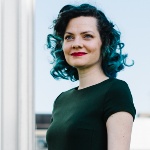
Sannah König
Dipl.-Ing.Media didactics


